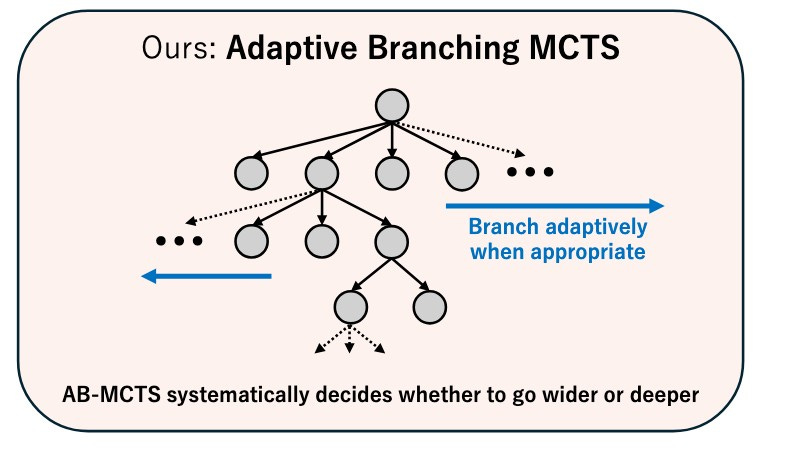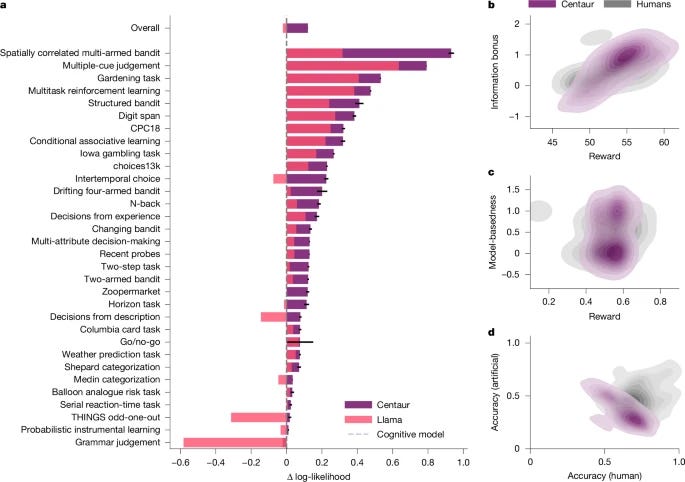Model Multipliers: Why Teamwork Beats Scale in AI
Imagine if ChatGPT, Gemini, and DeepSeek teamed up together...
Good morning AI entrepreneurs & enthusiasts,
Sakana AI just dropped a paradigm-shifting algorithm that lets multiple frontier models (like ChatGPT, Gemini, and DeepSeek) work together in real time.
Instead of a single dominant model, we’re entering an era of orchestration — where specialized agents combine forces to outperform solo giants. Everything else in today’s news flows from this: more models, more scale, more coordination.
In today’s AI news:
Sakana AI gets models to collaborate in teams
New AI model mimics human cognition
Perplexity launches Max tier with unlimited AI access
Lovable’s $150M raise at $2B valuation
Today's Top Tools & Quick News
Sakana AI enables model teamwork
The News: Sakana AI, a Tokyo-based lab, has introduced AB-MCTS (Adaptive Branching Monte Carlo Tree Search), an algorithm that enables advanced AI models like ChatGPT, Gemini, and DeepSeek to collaborate on complex tasks — shifting away from the "bigger is better" approach in AI.
The Details:
AB-MCTS extends the Monte Carlo Tree Search method from AlphaGo to inference time, letting the system choose whether to refine a solution or generate new ones at each step.
The algorithm selects the most appropriate model for each sub-task: one might handle logical reasoning, another excels at code generation. See implementation details.
If one model errs, another can identify and correct the output — leading to better performance overall.
On the ARC-AGI-2 benchmark, the team’s multi-agent setup solved 30% of problems, outperforming top solo models (23%) by 7%.
The underlying framework, TreeQuest, is now open source under Apache 2.0.
Why It Matters: AB-MCTS is ushering in an era of inference-time scaling and model cooperation. Just as human brains rely on specialized regions working together, this architecture points to a future where AI agents combine strengths to surpass monolithic models — accelerating our path to AGI.
AI that thinks like a human
The News: Researchers at Helmholtz Munich have developed Centaur, an AI model fine-tuned to simulate human behavior with remarkable precision across 160 psychological experiments.
The Details:
Centaur was trained on the Psych-101 dataset, featuring over 10 million decisions from 60K+ participants, covering tasks from memory recall to gambling.
Built on Meta’s LLaMA 3.1 70B model and fine-tuned with QLoRA, modifying just 0.15% of parameters.
Outperformed 14 existing cognitive models on 31 out of 32 behavioral benchmarks — full paper here.
Demonstrated internal representations aligned with human brain activity, even without training on neural data.
Why It Matters: Centaur is a breakthrough in cognitive modeling, offering both high interpretability and predictive strength. It raises key questions about the future of behavioral research, ethics in AI, and whether advanced models might eventually rival human reasoning — not just simulate it.
Perplexity launches $200/mo Max plan for power users
The News: Perplexity has introduced a new $200/month Max subscription tier aimed at professionals, researchers, and power users who want unrestricted access to AI tools and early previews of experimental features.
The Details:
Includes unlimited access to Labs — Perplexity’s orchestration tool for building dashboards, web apps, and presentations.
Grants early access to innovations like the Comet browser — a next-gen AI browsing assistant built from scratch.
Provides priority access to cutting-edge models including OpenAI’s o3-pro and Anthropic’s Claude Opus 4 — more on model access here.
Max subscribers also receive priority support and premium integrations.
Why It Matters: Perplexity is staking its claim in the high-end AI market, going head-to-head with OpenAI and Anthropic. For users pushing the limits of generative AI, this plan offers top-tier tools and first-mover access to new capabilities — positioning Perplexity as more than a Q&A tool, but a full-stack research assistant.
Lovable raises $150M at $2B valuation
The News: Lovable, an AI startup behind the "vibe coder" movement, is finalizing a funding round of over $150 million at a near $2B valuation.
The Details:
The round is reportedly led by Accel with participation from Creandum — two top-tier firms betting big on Lovable’s traction. More details here.
In just six months, Lovable scaled to $50M in ARR, powered by its fast-growing AI coding platform.
The raise reflects growing investor conviction in AI-native dev workflows and the next generation of productivity software.
Why It Matters: Lovable’s momentum highlights the intense competition in the AI tooling space — but also the abundance of capital fueling it. With $150M in funding, they’re well-positioned to scale — but the question remains: can they compete with the likes of Windsurf x OpenAI, especially after their recent $3.2B acquisition?
Today's Top Tools:
🤖 Pangu Pro – Huawei's new open-source logic engine
🧠 Perplexity – Introduced Max tier with Labs & early product access
🎨 Higgsfield Soul – Free advanced image AI with personality
Quick News:
OpenAI expanded its Oracle partnership, locking in 4.5GW in data center power, part of the $500B Stargate initiative
Anthropic is now pacing for $4B annual revenue — 4x its start-of-year projection, driven by strong enterprise Claude adoption
Google DeepMind teased a playable universe-style model for Veo 3, hinting at interactive world simulation use cases
Huawei open-sourced several Pangu models trained on proprietary Ascend AI chips, expanding its global AI ecosystem
Thanks for reading this far! Stay ahead of the curve with my daily AI newsletter—bringing you the latest in AI news, innovation, and leadership every single day, 365 days a year. See you tomorrow for more!







If AB-MCTS works in production, vendor lock-in could fade fast—brands might mix and match LLMs for each step of a campaign. Will licensing terms keep up with that modular future?
Sakana may have shown the technical path, but adoption hinges on latency and cost. Can cooperative inference stay competitive once the cloud bill arrives?